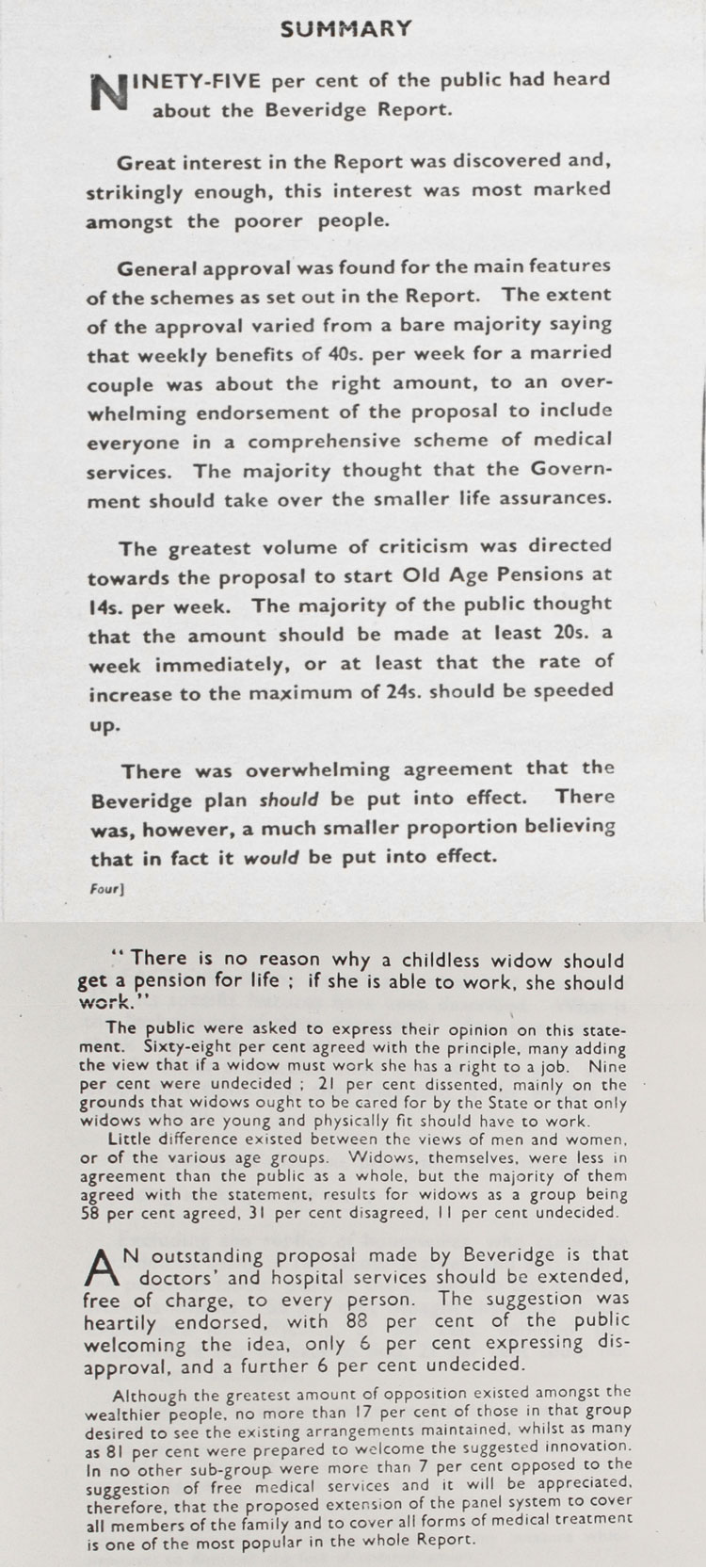
Results of a public opinion survey on the Beveridge Report. To get the scheme accepted by the Treasury and reduce costs, pensions were limited, 1942-1943 (PREM 4/89/2)
SUMMARY
NINETY-FIVE percent of the public had heard about the Beveridge Report.
Great interest in the Report was discovered and, strikingly enough, this interest was most marked amongst the poorer people.
General approval was found for the main features of the schemes as set out in the Report. The extent of the approval varied from the bare majority saying that weekly benefits of 40s. per week for a married couple was about the right amount, to an overwhelming endorsement of the proposal to include everyone in a comprehensive scheme of medical services. The majority thought that the Government should take over the smaller life assurances.
The greatest volume of criticism was directed towards the proposal to start Old Age Pensions at 14s. a week. The majority of the public thought that the amount should be at least 20s. a week immediately, or at least that the rate of increase to the maximum of 24s. should be speeded up.
There was overwhelming agreement that the Beveridge Plan should be put into effect. There was, however, a much smaller proportion believing that in fact it would be put into effect.
“There is no reason why a childless widow should get a pension for life: if she is able to work, she should work.”
The public were asked to express their opinion on this statement. Sixty-eight per cent agreed with the principle, many adding the view that if a widow must work she has a right to a job. Nine per cent were undecided: 21 per cent dissented, mainly on the grounds that widows ought to be cared for by the state or that only widows who were young and physically fit should have work.
Little difference existed between the views of men and women, or of the various age groups. Widows, themselves were less in agreement than the public as a whole, but the majority of them agreed with the statement, results for widows as a group being 58 per cent agreed, 31 per cent disagreed, 11 per cent undecided.
An outstanding proposal made by Beveridge is that doctors’ and hospital services should be extended, free of charge, to every person. The suggestion was heartily endorsed, with 88 per cent of the public welcoming the idea, only 6 per cent expressing disapproval, and a further 6 per cent undecided.
Although the greatest amount of opposition existed amongst the wealthier people, no more than 17 per cent of those in that group desired to see the existing arrangements maintained, whilst as many as 81 per cent were prepared to welcome the suggested innovation, in no other sub-group were there more than 7 per cent opposed to the suggestion of free medical services and it will be appreciated, therefore that the proposed extension of the panel system to cover all members of the family and to cover all forms of medical treatment is one of the most popular in the whole Report.
